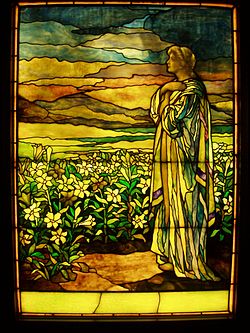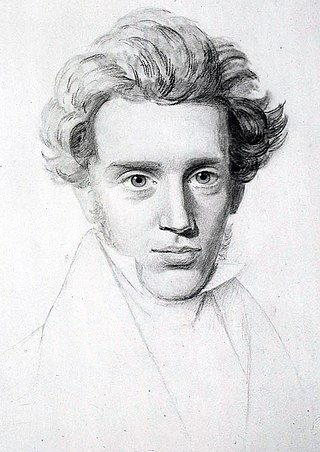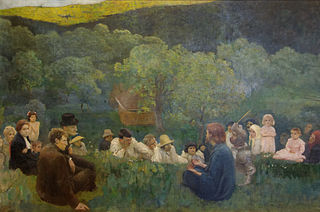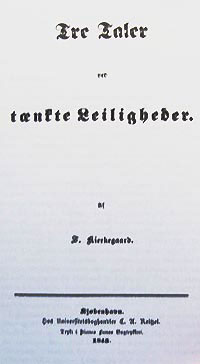
The Birds of the Air (also referred to as The Fowls of the Air or The Lilies of the Field) is a discourse given by Jesus during his Sermon on the Mount as recorded in the Gospel of Matthew and the Sermon on the Plain in the Gospel of Luke in the New Testament. The discourse makes several references to the natural world: ravens (in Luke), lilies and moths are all mentioned.
Contents
From Matthew 6, 25-33:
25 Therefore I tell you, do not worry about your life, what you will eat or what you will drink,[a] or about your body, what you will wear. Is not life more than food and the body more than clothing? 26 Look at the birds of the air: they neither sow nor reap nor gather into barns, and yet your heavenly Father feeds them. Are you not of more value than they? 27 And which of you by worrying can add a single hour to your span of life?[b] 28 And why do you worry about clothing? Consider the lilies of the field, how they grow; they neither toil nor spin, 29 yet I tell you, even Solomon in all his glory was not clothed like one of these. 30 But if God so clothes the grass of the field, which is alive today and tomorrow is thrown into the oven, will he not much more clothe you—you of little faith? 31 Therefore do not worry, saying, ‘What will we eat?’ or ‘What will we drink?’ or ‘What will we wear?’ 32 For it is the gentiles who seek all these things, and indeed your heavenly Father knows that you need all these things. 33 But seek first the kingdom of God[c] and his[d] righteousness, and all these things will be given to you as well.

From Luke 12, 22–32:
22 He said to his disciples, “Therefore I tell you, do not worry about your life, what you will eat, or about your body, what you will wear. 23F or life is more than food, and the body more than clothing. 24Consider the ravens: they neither sow nor reap, they have neither storehouse nor barn, and yet God feeds them. Of how much more value are you than the birds! 25 And can any of you by worrying add a single hour to your span of life? 26 If then you are not able to do so small a thing as that, why do you worry about the rest? 27 Consider the lilies, how they grow: they neither toil nor spin; yet I tell you, even Solomon in all his glory was not clothed like one of these. 28But if God so clothes the grass of the field, which is alive today and tomorrow is thrown into the oven, how much more will he clothe you—you of little faith! 29 And do not keep striving for what you are to eat and what you are to drink, and do not keep worrying. 30 For it is the nations of the world that strive after all these things, and your Father knows that you need them. 31 Instead, strive for his kingdom, and these things will be given to you as well. 32 “Do not be afraid, little flock, for it is your Father’s good pleasure to give you the kingdom.
The New King James Version incorporates Luke 12:33–34 within the same section:
Sell what you have and give alms; provide yourselves money bags which do not grow old, a treasure in the heavens that does not fail, where no thief approaches nor moth destroys. For where your treasure is, there your heart will be also.













